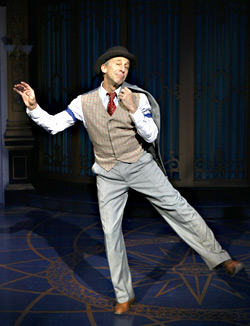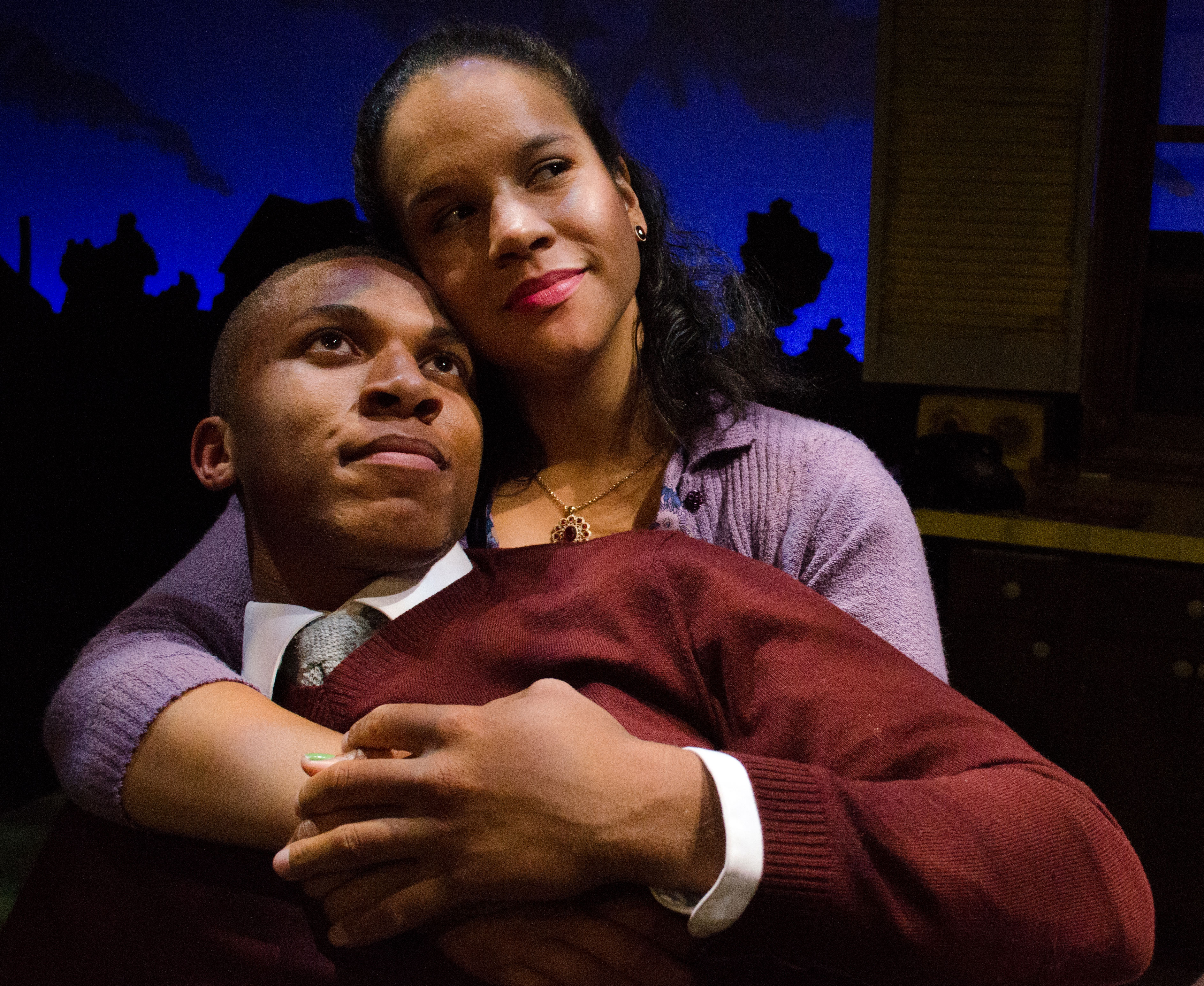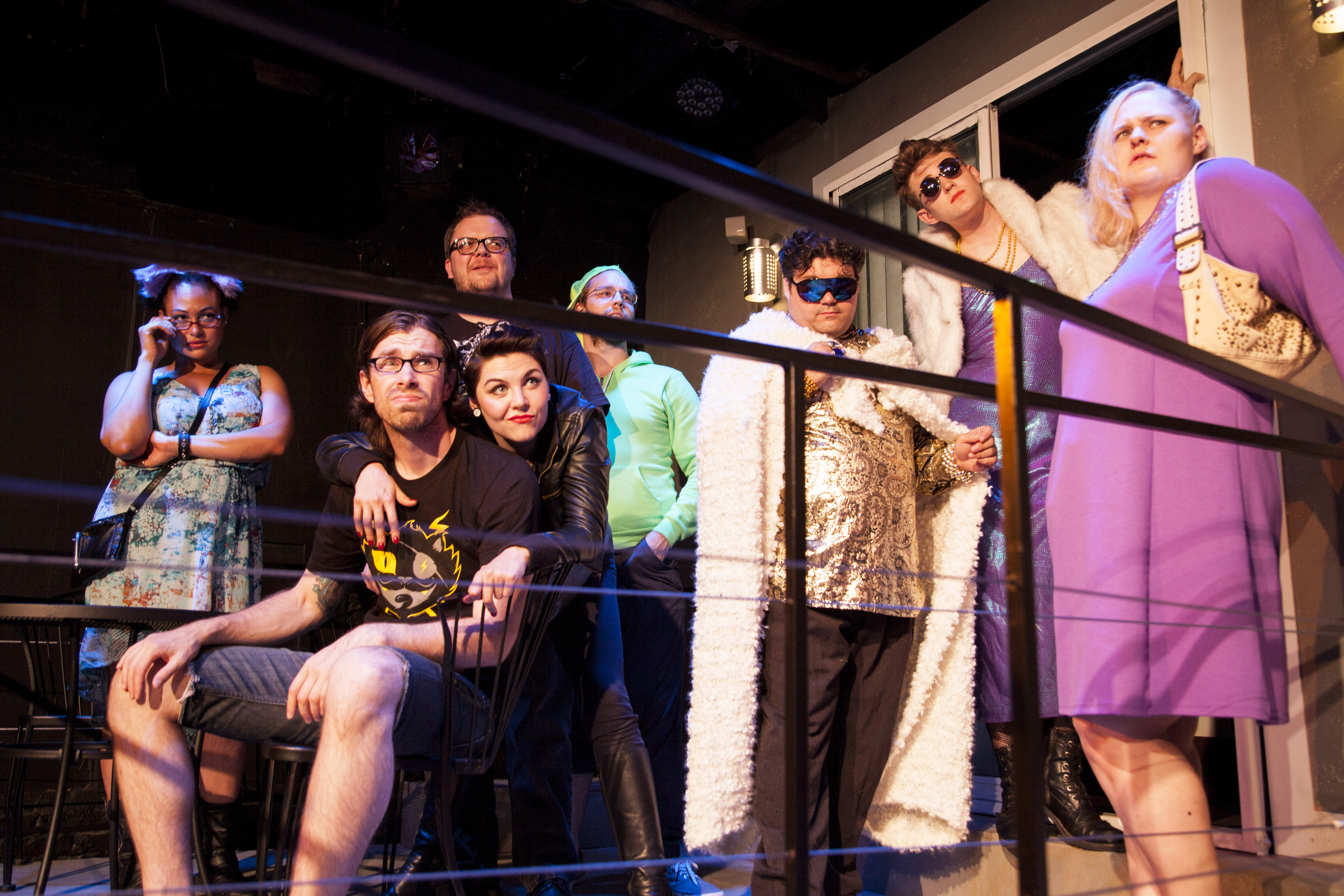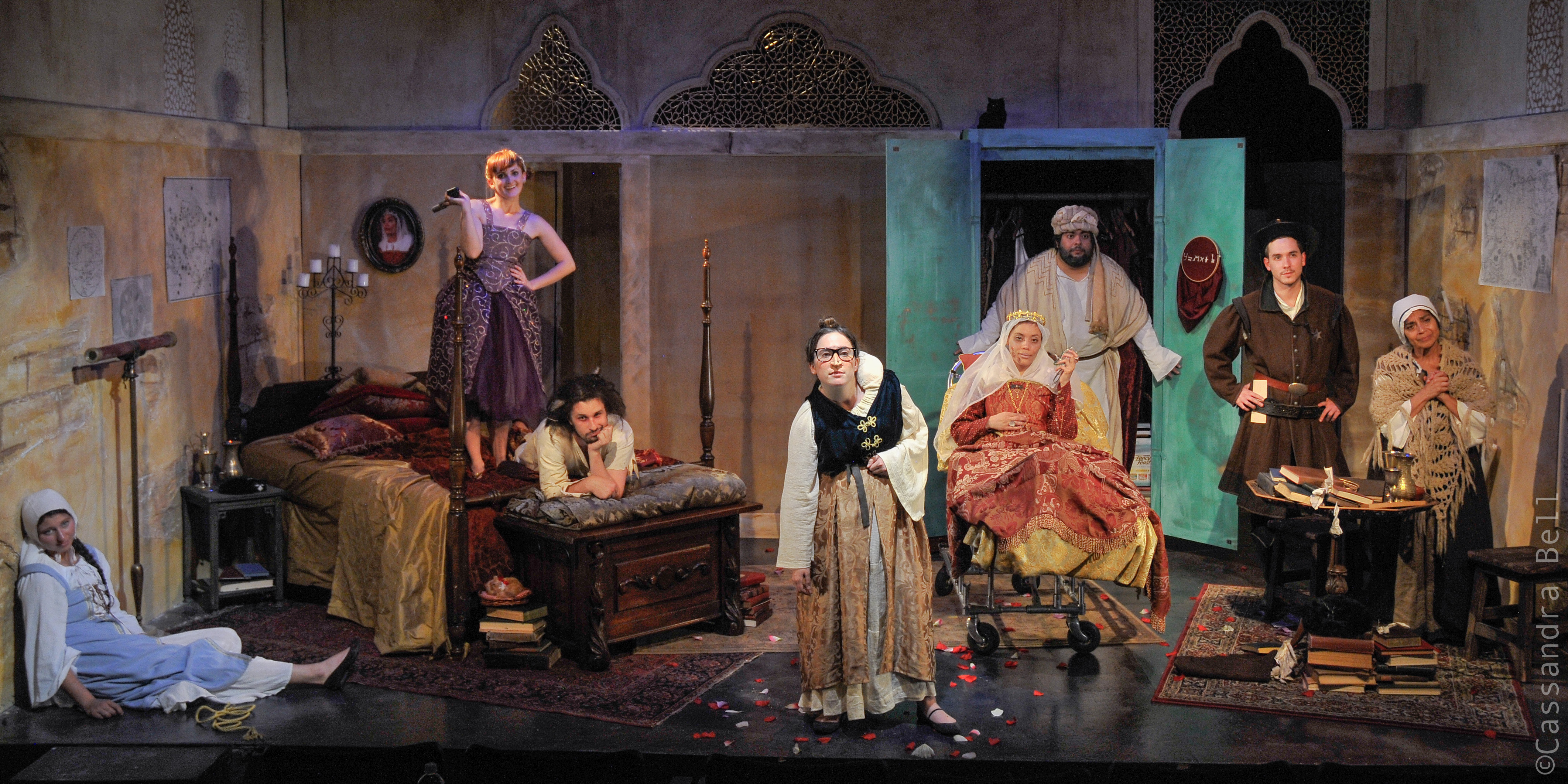It’s refreshing to catch a show that neither hides nor apologizes for its anachronisms. A Marvelous Party: The Noël Coward Celebration conjures an era before Mentos and Diet Coke, when thrillseekers had to depend on melody and wit for their amusement.
Credit for this frothy confection goes to director David Ira Goldstein and his nimble cast, who tackle dance and broad comedy as gamely as they approach a cappella harmonies or tricky keyboard duets. Coward’s singular sense of taste is evokedeverywhere in the production as well, with its elegantly minimalist set pieces and costumes augmented by subtle changes in lighting and scenery. Coward is present in spirit throughout the show, with a jaundiced eye peering down his nose—and often, it seems, just past a full snifter.Marvelous highlights Coward the composer rather than dwelling on his contributions as a dramatist or his reputation as a gay bon vivant who could count Winston Churchill, Ian Fleming, Richard Rodgers, and Laurence Olivier inside his social circle.
In the ditty that serves as the revue’s title, Coward makes it clear that while he prefers the company of aristocrats, they’re much more fun badly behaved: “I went to a marvelous party,” he confides giddily; “We didn’t start dinner till ten. And young Bobbie Carr/Did a stunt at the bar/With a lot of extraordinary men.” Ahem. So it goes, with Coward cataloging the peculiarities of his fellow ladies and gentlemen of breeding the same way a lepidopterist collects butterflies: with a large net and lots of razor-sharp pins.
The songs are culled from a wide variety of sources, since Coward’s body of work stretched from one continent to another and from stage to screen to television. Highlights include the ensemble pieces: “Together With Music” is a natural opener, and the inevitable “Let’s Do It” bookends the show with new verses composed by the cast, just as Coward used to reshape the lyric when he performed it live.
In between, there are moments of melancholy (Mark Anders’ tender reading of “Matelot,” for example, while “Mad About the Boy” finds Anna Lauris approaching full swoon) and utter nonsense. Anders and Richard Gray make fine foils at the twin pianos (Gray has a mean left hand that slaps out a solid rhythm), and David Silverman has his own special charm. It’s clear from the outset that he’s the most comfortable hoofer of the bunch, and his solo numbers—”London Is a Bit of Alright” and “World Weary” showcase his rich baritone and skilled footwork.
Goldstein has polished this show with lapidary precision since its debut three years ago in Rochester, N.Y. If there’s a single hitch here, it’s that passages are occasionally difficult to hear and the performers’ upper-crust impressions come and go like double-decker buses: regularly. Truly, as Rex Harrison’s son Noel once opined, “Imperialism and English accents are best left to the British.”
ACT also provides a bonus of sorts to accompany the revue—that being free entry with a Marvelous Party ticket stub to the late-night performance of Pinkaboo! The Closeted American Songbook downstairs at the Bullitt Cabaret. The good news: There’s no admission fee. The bad news: It’s worth everything you pay. The hour-long show is billed as the kind of diversion Coward might have discovered in one of his forays into the underworld of gay speakeasies. Wade Madsen and Victor Janusz play an itinerant lounge act that would have had Coward bolting for the door before the second number.
As “Phoenicia & Vic,” Madsen and Janusz unearth some of the hoariest showbiz tunes and conventions, and apparently amused everyone in the house (with one lone exception). In drag, Madsen resembles a cross-pollination of Phyllis Diller and The Kids in the Hall’s Chicken Lady. Vocally, you can find her in the Rolodex somewhere between Dusty Springfield and Duffy after a throat operation. The songs rarely provide a chuckle (although Janusz tickles his 88s with aplomb), and the in-between patter has been done to death, which is somehow the point and what’s supposed to make it funny. It does not. To make matters worse, Friday night’s “guest stars” included an under-rehearsed pas de deux from a pair of ladies sporting suits and fauxhawks, followed by the raunchy striptease of a life-sized stuffed stripper doll (enacted by her handler) in a vignette touted as “Jicama and the Contessa.” At first, it seemed the line at the upstairs bar was long and slow. Ultimately, the drink (a “Pinkaboo martini”) packed a nice wallop, and the wait wasn’t nearly as excruciating as the proceedings below.








